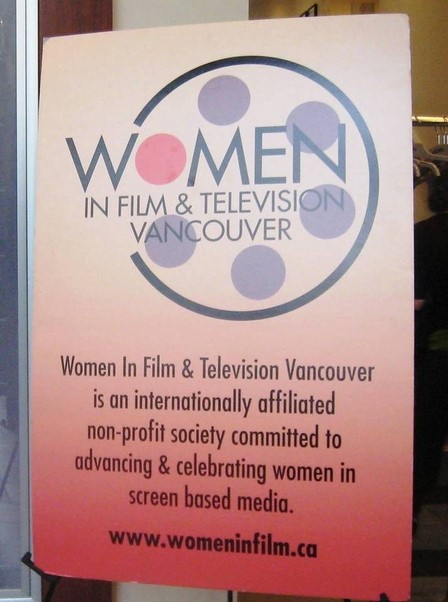Insights on Gender
Film festivals are meant to connect with peers and learn about the industry. The Vancouver event Women in Film and Television Festival features international films with women as the key creators. It also offers workshops and forums organized by Women in View, an association of independent media professionals in Canada.
For the Women in View panel, it’s evident that the issues of past years are still relevant at the 2010 forum. Moderated by Women in View Executive Director Rina Fraticelli, the panelists were Kirsten Newlands-Davidson from Studio B Productions, native actress Tantoo Cardinal, producer Anne Wheeler, and journalist and film critic Katherine Monk.
Points on Gender in Media Jobs
A major issue is a blunt evidence that male power at the top means a lesser female representation overall. As a result, women producers surround themselves with a team of women.
Kirsten Newlands-Davidson cited Studio B Productions where both producers are women and where the gender representation is 12 women for 20 men at the corporate level, whereas women occupy one-third of the movie production jobs.
Corporately, men tend to interact differently with women, even in the simple setting of a meeting. Women, however, are extremely competitive and tend to be critical of each other. Because of the multiple challenges for any advancement, women might not be aware that they often play a mental video game in which obstacles must be eliminated.
Rina Fraticelli pointed that women also need to be a part of the change and more supportive of each other.
Points on Gender Discrimination in Films and Television Series
The panelists and the audience voiced their frustration about the abusive portrayal of women in television series.
James Cameron gave powerful roles to the female characters of Avatar, yet that it involved researching the ideal breasts for their portrayal still ruffles some feathers. Surprisingly, women are less characterized in video games.
Tarantino and television series such as CSI spawned anger for their constant exploitation of visual violence on women. Yet, research shows that viewers resent voyeuristic films. Anne Wheeler, who directed Better than Chocolate, a sexually charged comedy, explained that sex needs a dramatic purpose, structured content, and logical context.
Points on the Outlook for Women in Media Jobs
“The original model of the narrative feature must change,” Katherine Monk said. The reality is that people are locked in roles. She cited the set of Juno and the emergence of a new generation who has let go of the archetype director.
A new generation of young women doesn’t have the same deference for the male CEO, as; as if their tattoos were symbols of their sassy-ness and entitlement.
“There is nothing women cannot do,” Tantoo Cardinal said. “Today women have expertise that used to be that of men.”
Anne Wheeler is still irritated by the so-called “gender limitation” due to heavy filming equipment. “A camera was never heavier than a six-month-old baby,” she said.
Fraticelli pointed that women need to move forward especially now that a woman has broken the Glass Ceiling (referring to Bigelow’s Oscar).
Points on Film Financing and Technology
Technical innovations in film equipment have greatly reduced costs and production time. But funding and distribution remain the bane of women filmmakers, although social media has contributed to more transparency in the allocation and politics of funding.
Distribution is a problem because the big screen loses to viewers who watch movies online. “Unfortunately, the web does not raise funds,” Wheeler said. Besides, television ratings would benefit by catering to the largest audience of women, which is 30-50 years old.
Wheeler said that technology will allow her to shoot her next film in 12 days with an eight-person crew. Her ideal formula for production would be less crew for a longer time, and a multi-tasking cast. This would mean that unions would need to be more flexible.
First published April 2010 Suite101.com

